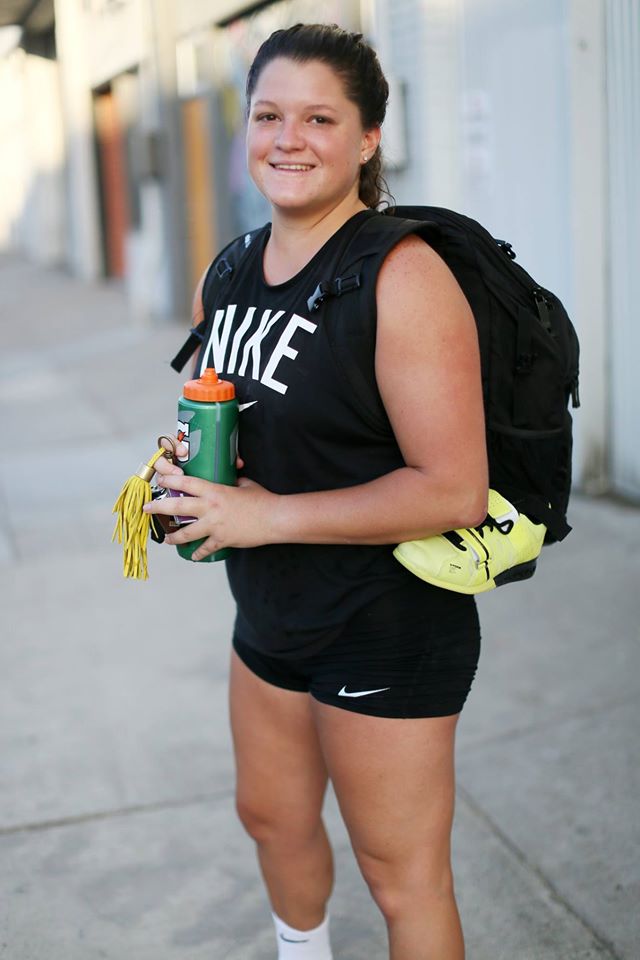
Hydrate For Peak Performance
Written by Nichole DeHart-Kribs
It is that time of year where most CrossFitters have one thing on their mind: The Open. They are scouring Dave Castro’s instagram feed to find any hint of what the 2017 Open has in store for them and anxiously practicing every feasible movement that may or may not show up. We get it, you want to be as prepared as possible for the unknown and unknowable. Well, there are other ways to prepare for these events that are often overlooked. One of the most important is hydration.
Hydration is crucial for athletes looking to perform at their best. It helps regulate body temperature, provides energy, reduces cramping and will help overall performance [1]. Proper hydration in athletes is pivotal if they want to continue to perform at their peak, especially when taking part in a high intensity training event like The Open.
At Invictus, we host Friday Night Lights every year for each of The Open workouts. This provides a great environment for our athletes as they compete with their training partners, have the support and cheers of the gym community, and it provides them with an electrifying atmosphere that helps them push to perform their best. However, the hundreds of bodies crammed into our gym space makes the training environment extra hot and results in excessive sweating that can lead to dizziness, nausea, muscle cramps, dry mouth, etc [1]. It also doesn’t help that we live in sunny San Diego so the temperature tends to be on the warmer side anyway. While some of those side effects are just results of high intensity training, they are also signs of dehydration. Athletes can work to reduce dehydration by preparing well in advance for events like Friday Night Lights. This amount of sweat loss and heat can have an effect on athletes if they don’t prepare well by hydrating ahead of time. In fact, a decrease in hydration of as little as 2% reduces maximal strength and athletic performance [3]. So, how do you prepare?
There is a ton of research out there on the best ways to hydrate, how often, how much, etc. However, based on my research, I have distilled the main points down to the following:
AMOUNT
The old ‘eight eight-ounce glasses a day’ is something that is often touted as fact but actually does not have substantial research backing it up. What I have found is that most researchers encourage each person to listen to their body. Make sure to drink when you are thirsty and never drink to discomfort (hyponatremia is very serious and can result in hospitalization and/or death). A common water recommendation is to take your weight and divide it by 2 and that is the number of ounces you should shoot for in a day. If you are preparing for an event then you can increase the dosage by 20% or drink .7 ounces of water per pound of bodyweight [2].
ELECTROLYTES
While drinking water helps hydrate you, it isn’t the only thing that keeps you hydrated. The body actually need electrolytes to help keep tissue hydrated and to transport water through the walls of the small intestines where 95% of fluid absorption takes place [3]. For max water absorption, the body requires sodium and glucose/sucrose to facilitate water transportation. While we get up to 20% of our hydration needs met through food (like watery fruits and vegetables) [3], we still need to help out by adding some salt into our diets, especially if following a very strict paleo diet. Adding a pinch of salt and a teaspoon of maple syrup to a 16 ounce glass of water can help give you that absorption boost needed when drinking water. Salt tabs, nuun tablets and coconut water are also recommended, especially when you know that you will be doing an event in intense heat.
WHEN
It’s never too early to start preparing yourself to be well hydrated. For whatever event you are planning on competing in, start hydrating days in advance. If you are competing in multiple events in a day then keep some salty foods, like beef jerky, to snack on in between events.
There are many more nuances to proper hydration, especially for athletes, but this provides some general guidelines for your hydration process to optimize your performance so you can compete at your best. Bring on The Open!
References:
- Athletes: The Importance Of Good Hydration. (2015, March). Retrieved February 14, 2017, from https://familydoctor.org/athletes-the-importance-of-good-hydration/
- How To Stay Hydrated. (2013, April 21). Retrieved February 14, 2017, from http://www.lifestylebypoliquin.com/Lifestyle/StayHealthy/602/Health_Tip_24_Know_How_to_Stay_Hydrated_.aspx
- Sissons, M. (2015, December 15). Do You Know How To Properly Hydrate. Retrieved February 14, 2017, from http://www.marksdailyapple.com/how-to-properly-hydrate/
Also Check Out …
How To Stay Hydrated In The Heat